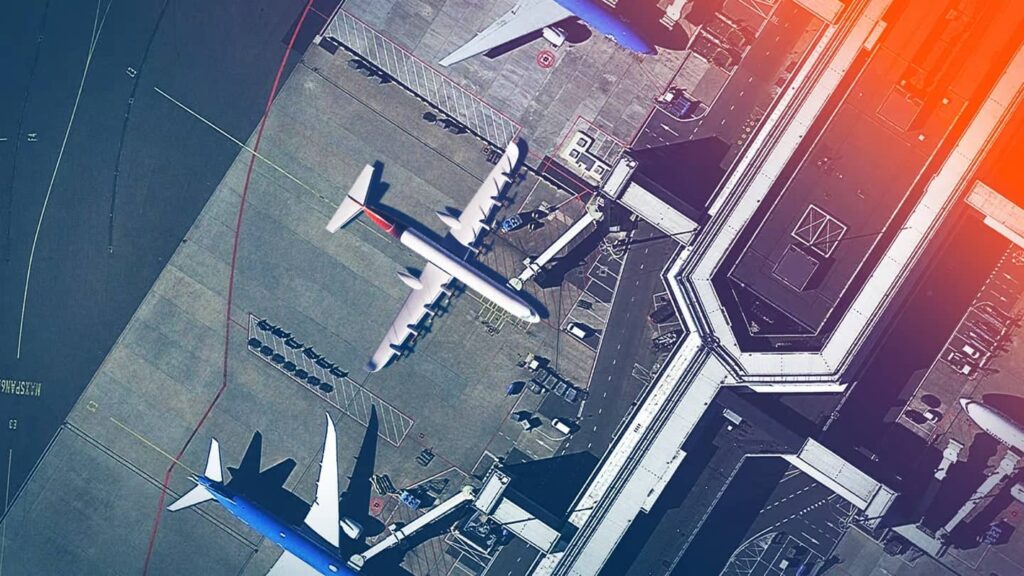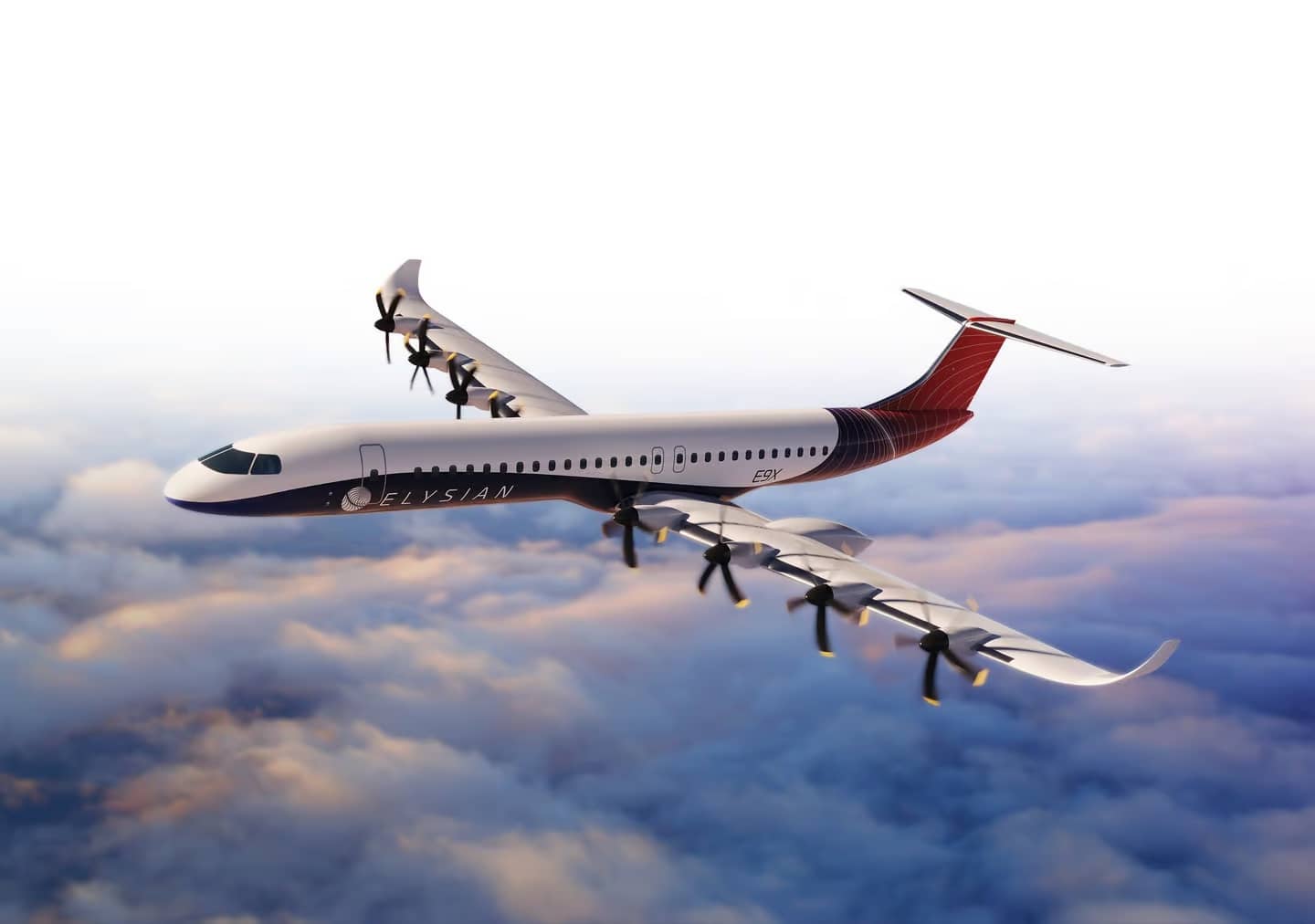A Dutch startup is challenging conventions in aviation with a bold promise: long-range electric planes, capable of covering distances many believed only possible with hydrogen. Elysian, with its E9X model, aims to demonstrate that batteries can actually power large aircraft. How big? 90 seats. With how much autonomy? 800-1000 kilometers.
Revolution in electric aviation
For many years, the prevailing view in the industry was that batteries, due to their weight and limited capacity, were unsuitable for powering large, long-range aircraft. Most efforts have therefore focused on the development of hydrogen-powered aircraft, considered lighter and suitable for longer distances. However, Elysian has a different vision.

The Dutch startup claims that with current batteries, already capable of reaching energy densities of 360-500 Wh/kg, it is possible to build electric planes that can easily compete with hydrogen ones, covering distances of up to 1000 km.
Innovative design for maximum efficiency
Elysian not only challenges conventions in terms of energy source, but also offers a revolutionary aircraft design. Taking inspiration by contrast from the planes of the 60s (which were known for their inefficiency and need to carry large amounts of fuel), the startup developed a plane with a relatively small fuselage and longer wings than today's jets.
This design not only reduces the mass of the aircraft, but also contributes to a decrease in aerodynamic drag by 15%, thus increasing autonomy.

Efficient and sustainable long range
One of the key selling points of electric planes is their superior energy efficiency compared to traditional fossil-fuel or even hydrogen-powered planes. Elysian highlights how an electric plane can travel five times the distance of a hydrogen or alternative sustainable fuel (SAF) powered aircraft with the same amount of energy. A fundamental aspect in the context of the global transition towards renewable energy sources.
Yet, despite the optimism and innovations proposed by Elysian, the path towards the creation of a commercial electric plane is full of unknowns. The design, prototyping, testing, certification and production phases of an aircraft of this type will require billions in investments. Not to mention the management of charging infrastructure at airports, given the need to manage large battery packs and provide fast and efficient charging.

Long-range electric planes? A decade
Despite the challenges, the Elysian project can become an important step towards decarbonizing the skies. With a forecast of entry into service in 2033 and the financial support of Panta Holdings, the game is still to be played.
The transition to clean aviation is crucial for our planet, and could become a tangible reality that will change the face of aviation as we know it.


